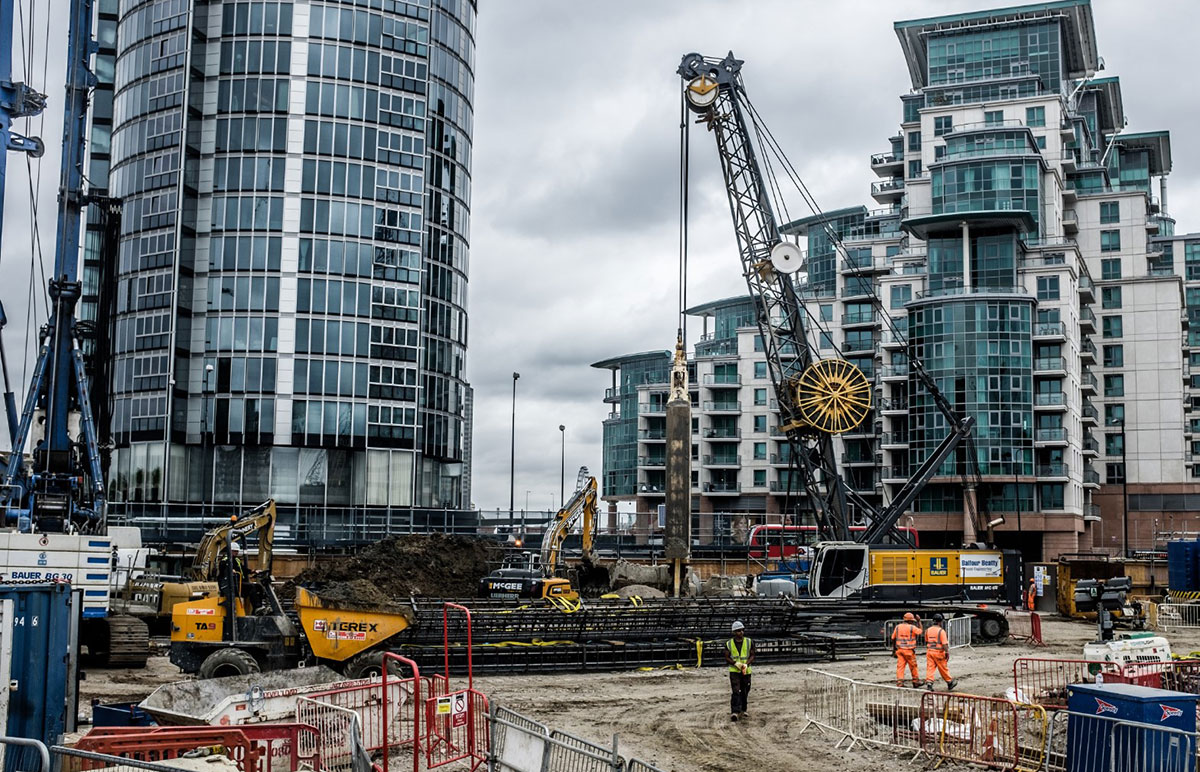Our Geotheta Diaries
Table of ContentsThe smart Trick of Geotheta That Nobody is DiscussingAn Unbiased View of GeothetaThe 7-Minute Rule for GeothetaThings about GeothetaThe Only Guide for Geotheta

They perform website examinations, gather samples, do laboratory examinations, and examine data to examine the suitability of the ground for building jobs - Geo Tech Engineer. Based on their findings, geotechnical designers provide suggestions for foundation design, slope stability, maintaining structures, and reduction of geotechnical dangers. They collaborate with other specialists, such as engineers, structural designers, and building groups, to ensure that geotechnical considerations are incorporated into the general task layout and execution
By analyzing the behavior and homes of dirt and rock, they can identify possible geotechnical hazards such as landslides, soil negotiation, or incline instability. Their know-how helps stop failings or crashes that could threaten lives and home. Below are some detailed responsibilities and responsibilities of a geotechnical engineer: Website Examination: Geotechnical engineers conduct site examinations to collect information on subsurface conditions.
They translate the information to recognize the buildings and habits of the dirt and rock, including their toughness, permeability, compaction characteristics, and groundwater conditions. Geotechnical Analysis and Layout: Geotechnical designers assess the data collected throughout site examinations to examine the stability and viability of the site for building and construction projects. They do geotechnical calculations and modeling to evaluate aspects such as bearing capacity, settlement, incline stability, side planet pressures, and groundwater circulation.
Facts About Geotheta Uncovered
Structure Style: Geotechnical engineers play a vital role in developing structures that can safely sustain the intended structure. They assess the soil conditions and tons needs to identify the proper structure kind, such as superficial foundations (e.g., footings), deep structures (e.g (https://www.anyflip.com/homepage/zuylo)., heaps), or specialized methods like dirt enhancement. They consider elements such as negotiation restrictions, birthing capability, and soil-structure communication to develop ideal structure designs
They evaluate construction strategies, screen website activities, and carry out field inspections to confirm that the design referrals are adhered to. If unexpected geotechnical issues occur, they evaluate the circumstance and provide referrals for remediation or changes to the design. Threat Analysis and Reduction: Geotechnical designers examine geotechnical dangers and risks connected with the job website, such as landslides, liquefaction, or dirt disintegration.

Collaboration and Communication: Geotechnical designers work closely with various other professionals associated with a project, such as designers, architectural designers, and building and construction teams. Effective communication and collaboration are important to integrate geotechnical considerations into the overall job design and building and construction procedure. Geotechnical engineers give technical expertise, solution questions, and ensure that geotechnical needs are fulfilled.
The Ultimate Guide To Geotheta
Below are some kinds of geotechnical designers: Structure Designer: Foundation designers focus on designing and assessing foundations for structures. They examine the dirt problems, lots requirements, and website characteristics to establish one of the most suitable foundation type and design, such as shallow foundations, deep structures, or specialized methods like stack structures.
They examine the aspects affecting slope stability, such as dirt properties, groundwater conditions, and incline geometry, and create techniques to stop slope failings and alleviate risks. Earthquake Designer: Quake engineers concentrate on assessing and developing structures to withstand seismic forces. They assess the seismic threat of a site, review dirt liquefaction possibility, and create seismic style criteria to guarantee the safety and security see here now and strength of structures throughout earthquakes.
They perform field screening, gather samples, and assess the accumulated data to define the soil residential properties, geologic formations, and groundwater problems at a website. Geotechnical Instrumentation Designer: Geotechnical instrumentation designers concentrate on tracking and gauging the behavior of dirt, rock, and structures. They mount and keep instrumentation systems that keep an eye on elements such as dirt settlement, groundwater levels, incline activities, and structural displacements to examine performance and supply early cautions of prospective problems.
The Basic Principles Of Geotheta
They perform tests such as triaxial examinations, consolidation tests, direct shear tests, and permeability tests to collect information for geotechnical analysis and layout. Geosynthetics Designer: Geosynthetics engineers specialize in the style and application of geosynthetic materials, such as geotextiles, geogrids, and geomembranes. They make use of these materials to enhance dirt stability, enhance slopes, offer drainage services, and control erosion.
They have a tendency to be investigatory people, which indicates they're intellectual, reflective, and inquisitive. They wonder, systematic, reasonable, logical, and logical. Some of them are additionally social, indicating they're kind, charitable, participating, client, caring, practical, understanding, sensible, and friendly. Does this seem like you? Take our totally free profession examination to find out if geotechnical engineer is just one of your top job suits.
In the office environment, geotechnical engineers make use of specialized software application tools to perform estimations, develop designs, and analyze data. They prepare reports, review project requirements, connect with clients and staff member, and coordinate job activities. The workplace setup supplies a conducive setting for study, analysis, and partnership with other professionals included in the project.
Geotheta Fundamentals Explained
They frequently visit task websites to carry out website investigations, assess geotechnical conditions, and collect information for evaluation. These gos to include traveling to different places, in some cases in remote or difficult terrains. Geotechnical designers may perform dirt tasting, conduct tests, and display building activities to guarantee that the geotechnical facets of the job are being implemented properly.
Geotechnical engineers also function in specialized geotechnical research laboratories. Geotechnical laboratory engineers work extensively in these atmospheres, handling screening tools, operating tools, and taping information.